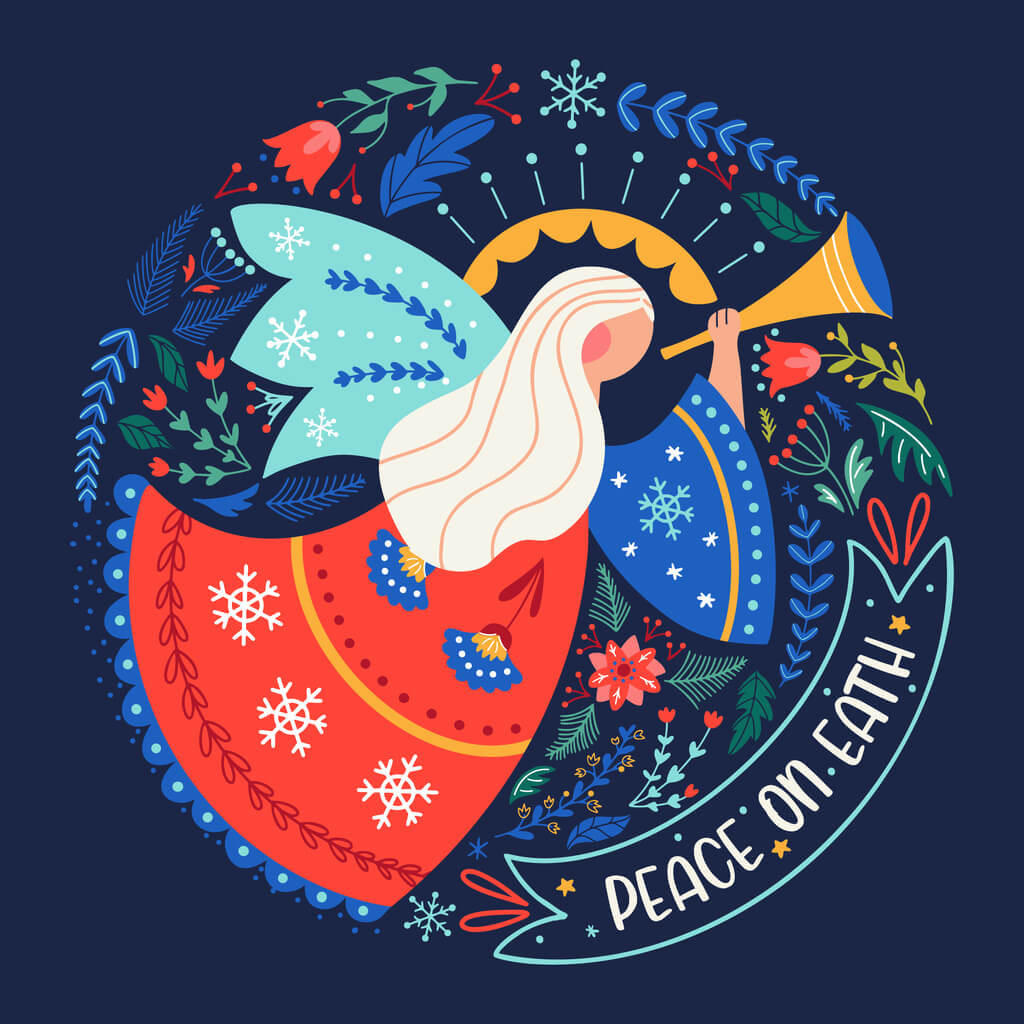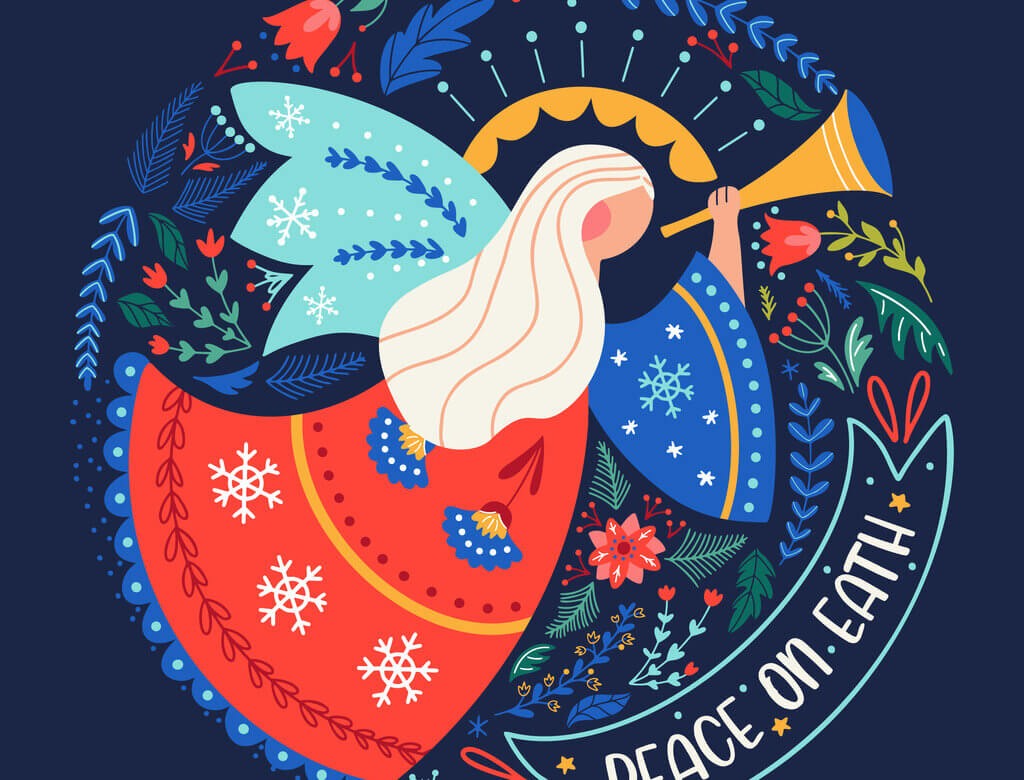A Path to Peace in a Time of Polycrisis
Douglas Roche, Edmonton
Volume 37 Issue 10, 11 & 12 | Posted: January 3, 2023

EDMONTON—Every year at Christmas, we try to recapture the idea of peace. In 2022, with the Ukraine war blazing and even the idea of a “Christmas truce” rejected, the goal of peace in the world seems as though it’s just a romantic ideal. But I would like to offer a dissent from the notion that Santa Claus and peace are incompatible in our world of turmoil today.
This is not just a matter of Russia and Ukraine silencing their guns for a few hours in the spirit of Silent Night. The only record of a Christmas truce that I can find occurred in 1914, during the First World War, when fighting German and British soldiers sang carols on Christmas Eve. On Christmas morning, German troops emerged from their trenches, waving their arms to demonstrate that they had no ill intent. When it became clear that they were not carrying weapons, British soldiers soon joined them, meeting in No Man’s Land to socialize and exchange gifts.
However, in the days following Christmas, violence returned to the Western Front. Though the fighting ceased, as Pope Benedict XV phrased it, “at least upon the night the angels sang,” the war had to play itself out. Fighting was the only route to some sort of peace. Today we understand that peace is not just the absence of war. A truce is not enough. Negotiations are not enough.
Suppose, by some twist of fate, a sudden ceasefire in the Ukraine war occurred without either Ukraine or Russia being declared a winner; and Russia’s threat to use nuclear weapons stopped; and Canada actually used its diplomatic machinery to become active in helping both Ukraine and Russia to live with the geopolitical contours agreed at the negotiating table. Would the world then be at peace? Unfortunately, the answer is no.
While the Ukraine war is the focal point of governments and the media, the list of crises threatening global security is staggering. The modernization of nuclear weapons continues every day. Global warming worsens every hour. A new pandemic can strike any minute. Hunger, armed conflicts, terrorism, insecurity, and the intolerable suffering of refugees driven out of their homes by war, droughts, floods, or a combination of all three shame the claims made that human rights are expanding in the world.
The world is facing so many intermingled crises that a new term is now being used: the polycrisis. As the Financial Times puts it: “In the polycrisis, the shocks are disparate, but they interact so that the whole is even more overwhelming than the sum of the parts.” United Nations Secretary-General António Guterres has found a dramatic phrase to express the polycrisis: “We are gridlocked in colossal global dysfunction.”
At least, there is a place to start in applying new lessons from the Ukraine war. Despite their internal differences, the G20 Bali Leaders’ Declaration of Nov. 16, said: “The use or threat of use of nuclear weapons is inadmissible. The peaceful resolution of conflicts, efforts to address crises as well as diplomacy and dialogue, are vital. Today’s era must not be of war.” The age of common security, or at least the recognition that no one nation can achieve security at the expense of neighbours, has arrived. The polycrisis shows this.
Most of the world’s peoples, not least of all Canadians, want nonviolence as a guiding principle for a peaceful world. Nonviolence has far more than a direct physical application: it applies to economic and social relationships and the relationship of humanity as a whole to the planet. It is a new way of thinking and it needs to be espoused by political leaders, not just by academics or religious leaders.
Changing our attitude to reject militarism as such an important component of Canadian foreign policy—as Guterres has asked of all countries—would enable Canada to adopt a more holistic approach in pursuing a just peace.
Today, when the world is going through an ugly upheaval brought about by a loss of faith in the international institutions to actually achieve global security and social justice, there is no clear Canadian voice calling out to defend the rule of international law, to defend the United Nations, to defend the poorest people against the most outrageous assaults on their humanity, to defend people everywhere against a possible Armageddon of nuclear warfare, to defend the planet itself against a carbon assault that could be contained by stringent laws. This is not to suggest that Canada by itself can settle the world’s greatest problems, but Canada, as a significant middle power, can help lead the way with its partners in the multilateral forums, not least the UN.
Christmas is revered as a “holy night,” in which we gaze at the star of peace, often in a reverie of nostalgia. But if we understand that the true spirit of Christmas embraces a huge agenda requiring a long-range vision of human security, peace might take hold. That would be a great Christmas present for the world. Onward, Santa.
Douglas Roche is an author and former Canadian senator.
Douglas Roche, Edmonton

